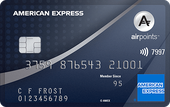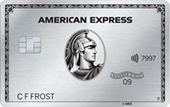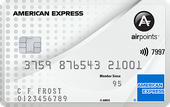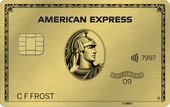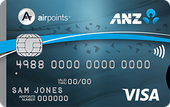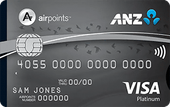What are rewards credit cards?
Credit card rewards are an incentive to get shoppers to use their credit card regularly. Cardholders can earn rewards points by spending on eligible purchases.
All rewards credit cards adhere to a different structure in the way that users earn and redeem points, but they will usually work to your financial benefit as long as you use the card to spend at least $5,000 a year and avoid paying interest charges.
If you’re a frequent traveller or simply want to be rewarded for your everyday purchases, credit card rewards are the way to go.
Types of credit card rewards
Most credit card rewards programs fall under one of three categories: general rewards points-earning cards, frequent flyer points-earning cards, and cashback-earning cards.
General rewards points
Often linked with a bank, examples of these include credit cards that earn Amex Membership Rewards, ASB True Rewards Dollars, Warehouse Purple Dollars, Westpac hotpoints, and Flybuys points.
Frequent flyer points
In New Zealand, Airpoints credit cards are the prime example of a credit card that earns frequent flyer points.
Depending on the credit card, users have lots of points redemption options, including:
- Offsetting the cost of flights and seat upgrades
- Converting points to airline frequent flyer points
- Merchandise from an online catalogue
- Retail gift cards
- Travel and accommodation
- Using points as dollars to spend at a bank's partner retailers
Cashback rewards
There is also a third category of rewards cards – cashback cards – which will be mentioned here but are also discussed in more detail on the cashback credit cards page.
Maximizing your credit card reward points
Sign up bonus points
Some card issuers might offer a sign up bonus for new cardholders who spend a target amount using the card within the first few months of account approval (e.g. 20,000 points or 50 Airpoints dollars for spending $750 in the first three months). This is a great way to get your points account off to a flying start.
Points value varies
Cards with a higher annual fee will normally earn points at a faster rate than less expensive cards. But the value of credit card rewards points can vary depending on the card provider. It's easy to understand the value of points expressed in dollar terms, like Airpoints Dollars and ASB True Rewards Dollars, where each dollar or 100 points earned can be spent as one New Zealand dollar. But it's more difficult to compare the value of points like Amex Membership Rewards, Flybuys and Westpac hotpoints, where points may be exchanged for frequent flyer points, merchandise, travel and retail gift cards.
Who are rewards credit cards suitable for?
- Points hackers. Want to sit at the pointy end on your next flight, or to put it more accurately, lie flat? Credit card rewards points could come in handy for that.
- Financially savvy. Credit card rewards is a strategic game. You'll need to manage bonus categories to maximise your earn rate, keep your finances under control, pay off your credit card, and stay on the lookout for offers.
- Proactive shoppers. These cards are designed for people who like to shop, dine out, or travel. If you are a low earner, then you probably won't be able to put enough on the card to earn a meaningful number of points.
- Stackers. Besides points earned with a credit card, you can earn additional points per dollar by clicking through to the store from your rewards program's online shopping portal. Alternatively, you can shop via a cashback shopping portal or register your cards for in-store cashback in addition to credit card points.
Who are rewards credit cards not suitable for?
- People who value cash. The value of a rewards point is hard to ascertain, whereas a dollar is worth a dollar. If you don't want to play the points game, earning cashback might be the better option.
- People who want simplicity. Unless you get a credit card with an earn rate that applies to all spending, you'll find yourself managing spending categories and playing the game to maximise points per dollar spent.
Rewards credit card features to consider
Other than the rewards points structure, there are other factors to consider when comparing rewards credit cards.
Points earn rate
Not every card is created equally, with the earn rate — sometimes referred to as MPD — varying between cards.
- Points caps. Some cards may limit the number of points you can earn in a month or a year. If you think you're likely to hit a card's points cap regularly you may want to opt for a different one with a higher cap, or no cap at all. But you'll probably have to pay a higher annual fee.
- Tiered vs fixed rate rewards. Tiered systems might offer more points per dollar for a specific category, such as supermarket shopping or petrol purchases. Fixed-rate setups, on the other hand, will pay the same level of points regardless of what you spend your money on. You may want to choose a card that offers the best rate for where you spend most of your money, or one that has a simple flat rate that's easy to understand and manage.
Annual fee
Not every rewards credit card will charge an annual fee. Where they do, an annual fee will typically range between $40 and $400 depending on how lucrative a credit card's rewards and complimentary benefits are, and it's possible to pay as much as $1,250 for a truly elite card.
To determine whether an annual fee is worth paying, work out how much you're likely to spend on credit card purchases per year and what the value of the rewards you earn will be.
Ideally, aim to recover at least a little more than the annual fee in rewards value, although you may also want to take into account the value to you of any other complimentary benefits attached to the card.
It's unusual for a rewards credit card to have no annual fee.
Sign up bonus
Also referred to as a welcome offer, a sign up bonus will reward you with extra points for meeting a specific spend requirement within a given period. The more valuable the bonus, the more you'll have to spend to earn it.
Redemption partners
Unlike a cashback credit card, it's typically possible to transfer points from a credit card reward program to a different rewards programs (unless the card directly earns into a program such as Airpoints). This gives you much more flexibility when redeeming for flights and upgrades.
Complimentary benefits
Many rewards cards come with free extras in addition to rewards points. These may include travel insurance, airport lounge access, purchase and price protection cover, extended warranty, a concierge service, and other useful benefits.
Introductory offer on rates
If you're using a rewards credit card to facilitate a balance transfer, you may be able to get your hands on a 0% introductory APR or low interest rate for the first 6-12 months, or — in rare circumstances — even the life of the transferred balance. If a rewards credit card offers a lower interest rate than your current credit card, a balance transfer offers an appropriate solution.
Some cards also have an introductory zero or low interest rate on purchases balances, typically for six months. In this case you can get away with making only the minimum monthly repayments during the promotional period, without paying high interest on your balance. But be aware of high revert interest rates payable if you still carry either a transferred balance or a purchases balance once the promotional period expires.
Foreign transaction fees
Most rewards cards charge a fee on overseas transactions, usually between 1.5% and 2.5% of the amount spent after conversion to New Zealand dollars. You'll pay this fee on purchases from any merchant whose processing centre is located outside New Zealand, even if you paid in New Zealand dollars, so this may cover many online purchases.
If you use your card a lot when travelling overseas or shopping online at overseas websites, you may want to look for a credit card with low foreign transaction fees.
How to compare the best rewards credit cards
- Decide what rewards you want to earn. The primary filter at this stage is the rewards program.
- Additional benefits. Apart from earning points per dollar, compare other useful features such as lounge access, concierge services, foreign currency fees, etc. You can ignore features you don't need.
- Consider spending habits. Choose a card that matches your spending habits to earn maximum reward points. Make sure to factor in any minimum spending requirement.
- Compare non-rewards features. Apart from points related features, sort by annual fee and interest rates.
How to stack rewards from credit cards and elsewhere
You can easily increase the rate at which you earn rewards points by double dipping. All this means is that you access your favourite online shopping sites via a loyalty portal, such as the Airpoints Mall. Once you've signed up, you can click on links to partner retailers' websites (brands such as The Iconic, EziBuy, eBay, and dozens more). Your spending will be tracked and you'll earn Airpoints Dollars on all your purchases, on top of any Airpoints Dollars or other rewards points you're earning from your card provider.
You can also earn extra points by paying at the supermarket with your rewards credit card while also swiping the supermarket chain's loyalty card before you pay.
